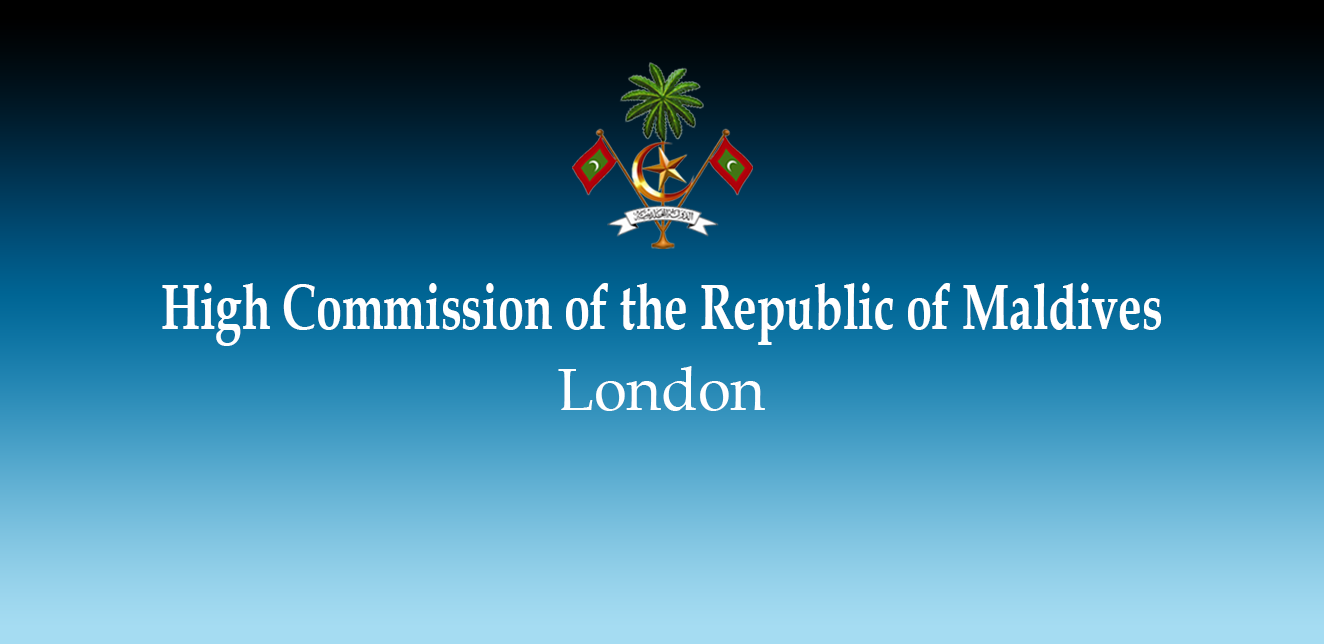Maldives foreign policy is founded upon pursuing the key national interests of national development, international peace and security, promoting human rights and upholding the principles of the UN Charter. Accordingly, Maldives is party to the Nuclear Non-Proliferation Treaty and numerous conventions promoting international trade and development, peace, environmental protection, health, and human rights.
Current Foreign Policy
Vision
To strive to make Maldivians proud by making the country a resilient nation
Mission
To increase opportunities for the economic advancement of Maldivians and to promote the national interests of the Maldives through innovative approaches
Principles
- Sovereign equality of States in accordance with international law
- A rule-based and inclusive international system
- Non-interference in the internal affairs of other countries
- The supremacy of diplomacy in managing and resolving global problems
- Friendship with all countries based on mutual respect
Goals
- Enhance the security and national sovereignty of the Maldives through increased bilateral and multilateral engagement
- Protect the Islamic identity of the Maldives and help to promote the values of Islam internationally
- Increase the economic resilience of the Maldives
- Promote greater regional cooperation in South Asia
- Provide quality consular services for Maldivians
- Promote efficiency and professionalism in the service
Global presence
Maldives retains diplomatic relations with 172 countries, and maintains 17 resident missions in Bangladesh, China, Germany, the European Union, India, Japan, Malaysia, Pakistan, Saudi Arabia, Singapore, Sri Lanka, Thailand, United Araba Emirates (UAE), the United Nations (Geneva), the United Nations (New York) and the United Kingdom.
Following Independence, Maldives joined the United Nations (UN) in 1965 and became a founding member of the South Asian Association for Regional Cooperation (SAARC) in 1985. Maldives later became a member of the World Trade Organisation (WTO) in 1995, the Multilateral Investment Guarantee Agency (MIGA) in 2005 and the International Labor Organization (ILO) in 2009. Currently, Maldives is a member of 63 international organizations.
Furthermore, in recent years Maldives has taken lead role in promoting regional collaboration and security in South Asia by hosting the SARRC summit in 2011.
Climate change
Maldives recognises that climate change is the biggest threat of our times, threatening not just the existence of Maldives, but the entire planet. The interests of all countries can only be achieved by combatting this threat.
As a prominent voice in the Alliance of Small Island States (AOSIS) and the G77, Maldives has taken a lead role in international negotiations on climate change and environmental protection. Maldives seeks genuine progress in climate change politics – binding commitments that will tackle the urgent threat of climate change in practice.

